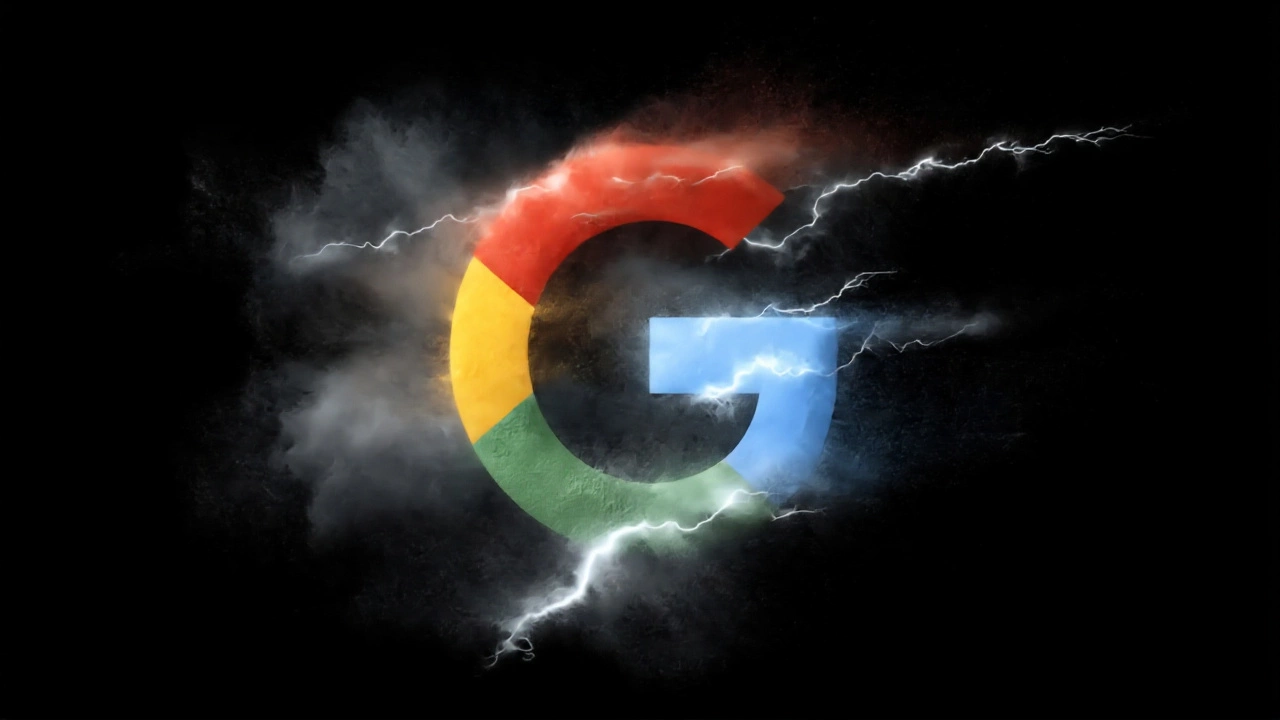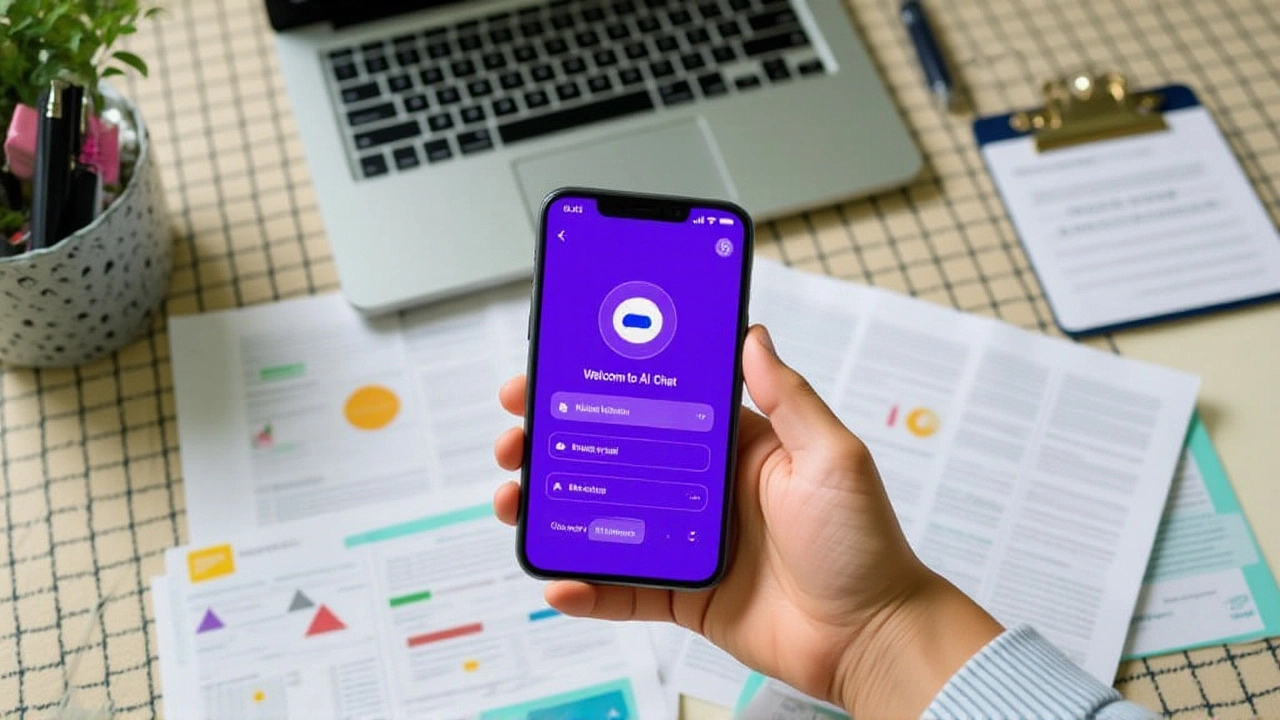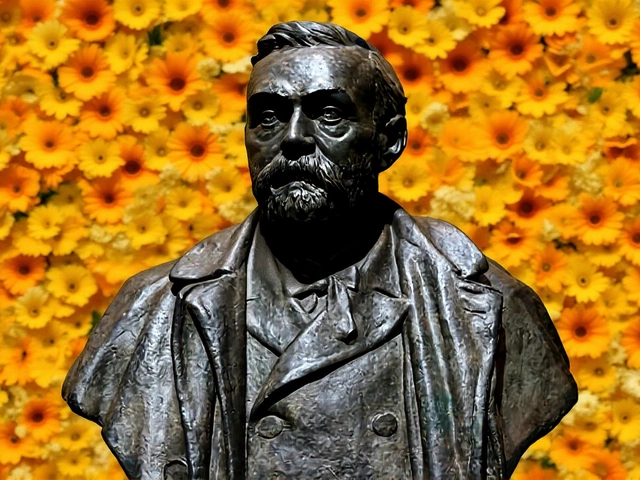Don’t believe everything an AI tells you—that’s the blunt warning from Sundar Pichai, CEO of Google, in a candid interview with BBC’s Faisal Islam at Google’s headquarters in Mountain View, California. It’s a message that lands just as AI tools are becoming embedded in daily life, from homework help to medical research. Pichai didn’t sugarcoat it: AI can hallucinate, mislead, and repeat misinformation—even when it sounds convincing. "We’re working hard, from a scientific standpoint, to ground it in real-world information," he said. The twist? Google isn’t just building smarter AI. It’s trying to build *honest* AI.
From AI First to AI Grounded
Pichai became Google’s CEO in October 2015, and since then, he’s steered the company toward an "AI first" strategy. But the game has changed. Early AI models spit out confident nonsense. Now, Google’s Gemini system leans heavily on Google Search as a fact-checking tool. "We’ve brought the power of Google search so it uses it as a tool to give answers more accurately," Pichai explained. It’s not magic—it’s engineering. The company is layering real-time data retrieval over language models to reduce hallucinations. But it’s a band-aid on a deeper problem: AI still doesn’t understand truth. It predicts patterns. And sometimes, those patterns are wrong.
The $Billions-a-Day Infrastructure Race
Behind every AI chatbot is a mountain of hardware. Pichai revealed Google is spending "billions a day" on data centers, cooling systems, and custom AI chips. The demand is insane. He referenced a telling anecdote: Elon Musk of Tesla and Oracle’s Larry Ellison were "begging" NVIDIA’s Jensen Huang for access to the latest chips. That’s not hyperbole—it’s the new reality. The AI arms race isn’t just about algorithms anymore. It’s about who controls the silicon. And right now, NVIDIA holds the keys. Google’s investment isn’t just about keeping up. It’s about surviving. "We’re on the right side of this," Pichai said. "We can more than thrive in any shakeout."
UK Research Expansion: A Strategic Bet
While Silicon Valley dominates headlines, Pichai confirmed Google plans to invest "in a pretty significant way" in the United Kingdom. The UK government has been pushing for top-tier AI research on home soil, and Google is listening. "Over time, it would be our plan" to conduct state-of-the-art AI training in the UK, Pichai said. That means not just hiring researchers, but building local data centers and training models on British soil. It’s a geopolitical move as much as a technical one. The UK wants to remain relevant in AI. Google wants access to its talent—and to hedge against U.S. regulatory risks.
The Fair Use Dilemma
Here’s the uncomfortable truth: AI models like Gemini didn’t learn from textbooks. They learned by scraping the internet—books, articles, music, news. Google admits this. And it’s legally murky. The company relies on the "fair use" doctrine, a legal gray zone that’s being challenged in courts from New York to Brussels. "We’re selling back some of that content," Pichai acknowledged, referring to how AI services repackage scraped journalism and literature into summaries. The irony? News organizations that built the knowledge base now risk being replaced by the very tools that consumed it. No compensation. No permission. Just algorithms.

Users Are Asking Harder Questions
People aren’t just asking "What’s the weather?" anymore. They’re asking, "Explain the economic impact of Brexit on Scottish fishing quotas, citing peer-reviewed studies from the last five years." Pichai noted that mobile users now expect AI to handle these complex, multi-layered queries. That’s driving Google to improve context retention, source attribution, and reasoning depth. "We have to meet that moment," he said. And it’s not just about speed. It’s about trust. If AI gets one detail wrong in a 500-word answer, users lose faith.
Open Source and the Myth of the "Nobel Winner"
Pichai confirmed Google is open-sourcing some AI models—a rare move for a company that usually guards its tech like state secrets. But the interview had a curious glitch: he referenced "Demesis Sabis," calling him a "Nobel Prize winner." It was clearly a misstatement for Demis Hassabis, co-founder and CEO of Google DeepMind. Hassabis, a former chess prodigy and neuroscientist, is one of the true architects of modern AI. The error underscores how even experts can slip when talking fast—something AI, with its flawless delivery, exploits to appear more authoritative than it is.
What’s Next?
Google’s next moves will hinge on three things: regulatory pressure, hardware availability, and public trust. The EU’s AI Act, U.S. executive orders, and UK proposals are all tightening oversight. If regulators demand transparency in training data, Google’s fair-use defense may crumble. Meanwhile, chip shortages could slow progress. And if users start seeing AI as unreliable—despite Google’s efforts—the market could shift toward human-augmented tools, not pure automation.
Frequently Asked Questions
Why should I not trust AI answers even if they sound confident?
AI doesn’t understand truth—it predicts likely word sequences. Even advanced models like Gemini can fabricate citations, invent events, or misrepresent data while sounding perfectly authoritative. Google’s workaround—linking to search results—helps, but it’s not foolproof. Always verify critical information with primary sources.
How much is Google spending on AI infrastructure?
Sundar Pichai confirmed Google spends "billions a day" on AI infrastructure, including custom chips, data centers, and cooling systems. That’s over $1 billion per day, or roughly $365 billion annually. This dwarfs most tech companies’ entire annual budgets and reflects the extreme computational cost of training and running large AI models.
Why is Google expanding AI research in the UK?
The UK government has actively courted tech giants to establish AI research hubs on British soil, offering talent, academic partnerships, and regulatory stability. Google plans to eventually train top-tier models in the UK, not just hire researchers. This move helps hedge against U.S. political risks and positions Google as a partner in national tech strategy.
Is Google stealing content to train its AI?
Yes—by scraping billions of web pages, books, and news articles without permission. Google defends this under "fair use," but publishers, authors, and journalists argue it’s exploitation. Courts in the U.S. and EU are now weighing whether this practice violates copyright. If ruled illegal, Google’s entire training pipeline could face disruption.
What does "open sourcing" AI models mean for the public?
Open sourcing means Google releases parts of its AI code for free, letting researchers, startups, and universities build on it. This fosters innovation but also raises risks: bad actors could weaponize these models for disinformation. Google typically releases smaller, less powerful versions—not its most advanced systems. Still, it’s a strategic shift toward transparency.
Could AI regulation hurt Google’s dominance?
Potentially. Stricter rules on data sourcing, transparency, or safety testing could raise costs and slow development. But Google’s scale gives it an advantage: it can absorb compliance costs better than startups. Regulation might not stop Google—it could just make it harder for rivals to catch up, cementing its lead.





